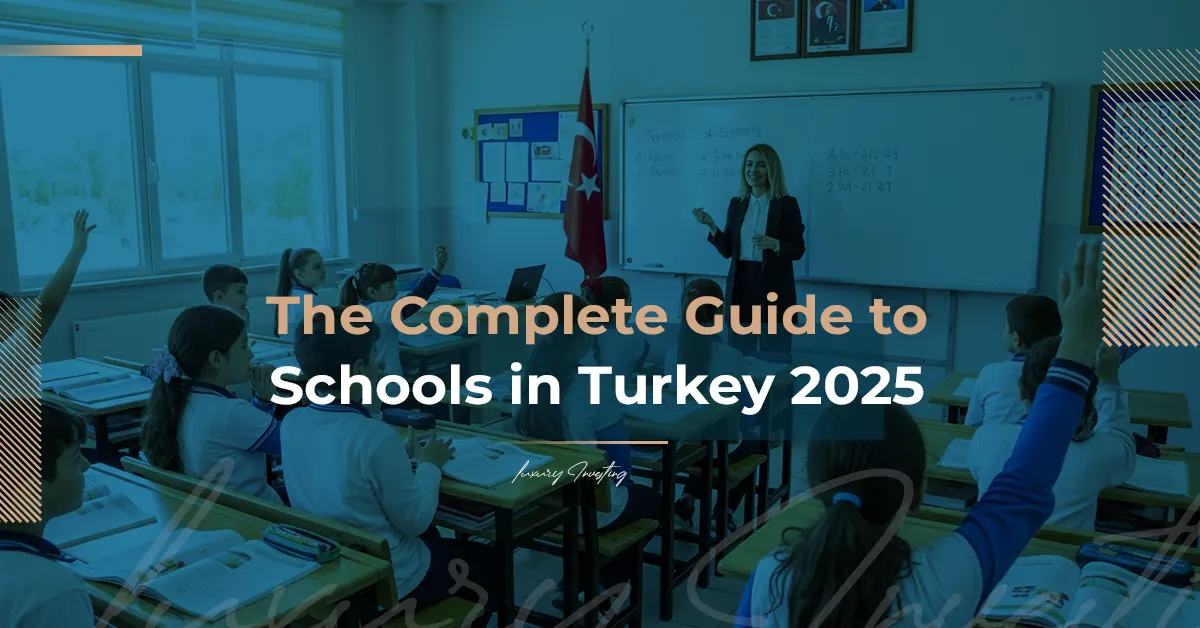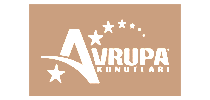
Table of Contents
Turkey has become one of the most attractive destinations for Arab and foreign families in recent years, thanks to the high quality of its education system and the diversity of its schools—governmental, private, and international.
In 2025, schools in Turkey represent a modern model that combines global curricula with traditional educational values, making them an ideal choice for expatriates residing in Istanbul, Ankara, Antalya, Bursa, and other major cities.
Education System in Turkey 2025
The Turkish education system is supervised by the Ministry of National Education (MEB) and includes 12 years of compulsory education:
- Primary School (İlkokul): Grades 1 to 4
- Middle School (Ortaokul): Grades 5 to 8
- High School (Lise): Grades 9 to 12
The system integrates science, languages, and technology, with an increasing focus on foreign languages such as English, French, and Arabic in some schools.
Types of Schools in Turkey
- Public Schools
These are free schools supervised by the government, where the main language of instruction is Turkish.
Foreign children can enroll after obtaining a residence permit (Kimlik).
Advantages: Free education, consistent quality, wide availability.
Disadvantages: Turkish is the only language of instruction.
- Private Schools
A popular choice among families seeking a higher quality of education, private schools often offer bilingual curricula combining Turkish and English.
Popular institutions: Bahçeşehir, Doğa, TED, Bilfen.
Tuition fees: Range from $3,000 to $15,000 per year, depending on grade level and location.
- International Schools in Turkey
These schools follow British (IGCSE/A Level), American (SAT/AP), or International Baccalaureate (IB) curricula.
Top international schools in Istanbul:
Istanbul International Community School (IICS)
British International School Istanbul (BISI)
MEF International School
Alfayez International School (Arabic & English tracks)
- Arabic Schools in Turkey
Widely available in Istanbul, Gaziantep, and Ankara, these schools teach the curricula used in Saudi Arabia, Jordan, or Egypt.
Examples: Al-Andalus, Al-Huda, Al-Yasmin, Al-Falah Academy, and Al-Awael International School.
Best for: Arab families wishing to continue education in Arabic while including English or Turkish as secondary languages.
School Registration in Turkey 2025
Enrollment usually takes place between June and August and requires the following documents:
- Valid passport and residence permit for the student and guardian
- Translated and notarized birth certificate
- Academic transcript or previous year’s certificate (translated)
- Recent passport-sized photos
Public school registration is available online via the e-Okul platform, while private and international schools require direct in-person registration.
Tuition Fees in Turkey 2025
In 2025, tuition fees in Turkey vary depending on the school type and curriculum:
Public schools are completely free, under the supervision of the Ministry of National Education, and remain the most common choice among locals and residents.
Private Turkish schools cost between $3,000 and $8,000 per year, offering strong language programs and modern teaching methods.
International British or American schools charge between $8,000 and $20,000 per year, reflecting their globally accredited curricula (IB, Cambridge, SAT) and multicultural learning environments.
Arabic international schools in Turkey are more affordable, typically ranging from $2,000 to $6,000 per year, combining Arabic education with English or Turkish.
Overall, education costs in Turkey remain lower than in most European countries, with a wide variety of options to match each family’s financial and academic needs.
Advantages of Studying in Turkey for Foreigners
- Multicultural learning environment.
- Variety of curricula (English, American, Arabic, and Turkish).
- More affordable compared to Europe.
- Easy transition to higher education in Turkey.
- Safe and stable country, ideal for families.
Tips for Parents When Choosing a School
- Define the preferred language of instruction (Turkish, English, or Arabic).
- Verify official accreditation from the Ministry of National Education (MEB).
- Visit the school and meet the academic administration.
- Compare tuition fees with the quality of facilities and services.
- Check parent reviews and feedback online.
Conclusion
In 2025, schools in Turkey continue to strengthen their position as one of the best education systems in the region, offering a balance of academic excellence, cultural diversity, and affordable tuition.
Whether you are looking for an international school in Istanbul or an Arabic school in Ankara, Turkey provides a wide range of options to suit the needs of Arab and foreign families living in the country.
Frequently asked questions
There are four main types of schools in Turkey: public, private, international, and Arabic. Each type differs in language, curriculum, and tuition fees.
Yes, public schools in Turkey are completely free and supervised by the Turkish Ministry of Education (MEB). Foreigners can enroll provided they have a valid residence permit (Kimlik).
The primary language of instruction in public schools is Turkish, while private and international schools may use English or bilingual (Turkish-English) programs.
Registration usually begins between June and August each year. Online registration services are available through the e-Okul platform for public schools.
A valid passport and residence permit, a translated and notarized birth certificate, a translated academic transcript, and personal photos of the student.
Governmental: Free
Private Turkish: $3,000 to $8,000
International British/American: $8,000 to $20,000
International Arab: $2,000 to $6,000
Yes, Arab schools are widespread in cities such as Istanbul, Ankara, and Gaziantep. They teach the Saudi, Egyptian, or Jordanian curricula, such as Al-Andalus, Al-Huda, and Al-Yasmin schools.








